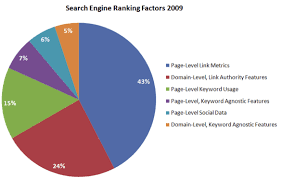The Power of Keyword Search Engine Ranking
In the vast landscape of the internet, keywords act as the guiding stars that lead users to relevant content. When it comes to search engine ranking, keywords play a pivotal role in determining a website’s visibility and traffic.
Keyword search engine ranking refers to the position a website holds in search engine results pages (SERPs) for specific keywords or phrases. The higher a website ranks for a particular keyword, the more likely it is to attract organic traffic from users searching for that term.
Search engines like Google use complex algorithms to determine the relevance and authority of web pages based on their content and how well they match user queries. By strategically incorporating relevant keywords into website content, meta tags, and other elements, website owners can improve their chances of ranking higher in search results.
Effective keyword research is essential for achieving a strong search engine ranking. By identifying high-traffic keywords that are relevant to their target audience, website owners can create content that resonates with users and aligns with search engine algorithms.
Regularly monitoring keyword performance and making adjustments based on changing trends and user behaviour is crucial for maintaining a competitive edge in search engine rankings. By staying informed about popular keywords in their industry and adapting their SEO strategies accordingly, website owners can enhance their online visibility and reach a wider audience.
Ultimately, keyword search engine ranking is a dynamic process that requires continuous effort and adaptation. By prioritising keyword research, content optimisation, and monitoring performance metrics, website owners can improve their chances of ranking higher in search results and attracting valuable organic traffic.
Six Strategic Tips to Enhance Your Keyword Rankings in Search Engines: A UK Guide
- 1. Conduct thorough keyword research to identify relevant and high-traffic keywords.
- 2. Use long-tail keywords to target specific search queries and improve ranking for niche topics.
- 3. Optimise on-page content, including titles, headings, meta descriptions, and image alt text with targeted keywords.
- 4. Create high-quality and relevant content that naturally incorporates chosen keywords.
- 5. Monitor keyword performance regularly using analytics tools and adjust strategies based on results.
- 6. Stay updated with search engine algorithms to adapt keyword strategies for better ranking success.
1. Conduct thorough keyword research to identify relevant and high-traffic keywords.
To enhance your website’s search engine ranking, it is crucial to conduct thorough keyword research to pinpoint relevant and high-traffic keywords. By delving into the search habits of your target audience and identifying the terms they commonly use, you can tailor your content to align with their interests and needs. This strategic approach not only boosts your chances of ranking higher in search results but also ensures that your website attracts organic traffic from users actively seeking the information or services you provide.
2. Use long-tail keywords to target specific search queries and improve ranking for niche topics.
Utilising long-tail keywords is a strategic approach to enhance keyword search engine ranking. By focusing on longer, more specific keyword phrases, website owners can target niche topics and cater to specific search queries. This tactic not only helps in attracting more relevant traffic but also improves the chances of ranking higher in search engine results for those particular topics. Embracing long-tail keywords is a valuable technique to refine targeting efforts and increase visibility within specialised areas of interest.
3. Optimise on-page content, including titles, headings, meta descriptions, and image alt text with targeted keywords.
To enhance keyword search engine ranking, a crucial tip is to optimise on-page content meticulously. This involves strategically incorporating targeted keywords into key elements such as titles, headings, meta descriptions, and image alt text. By aligning these components with relevant keywords that resonate with user queries, website owners can significantly improve their chances of ranking higher in search engine results pages. This practice not only enhances the visibility of the website but also ensures that the content is well-optimised for search engine algorithms, ultimately driving organic traffic and boosting online presence effectively.
4. Create high-quality and relevant content that naturally incorporates chosen keywords.
Creating high-quality and relevant content that seamlessly integrates chosen keywords is a fundamental tip for improving keyword search engine ranking. By crafting content that not only resonates with the target audience but also aligns with search engine algorithms, website owners can enhance their online visibility and attract organic traffic. When keywords are naturally woven into the fabric of compelling and informative content, it not only boosts search engine rankings but also enhances user experience, ultimately leading to increased engagement and conversions.
5. Monitor keyword performance regularly using analytics tools and adjust strategies based on results.
To maximise keyword search engine ranking, it is crucial to monitor keyword performance regularly using analytics tools and adjust strategies based on results. By tracking the performance of selected keywords, website owners can gain valuable insights into user behaviour, search trends, and the effectiveness of their SEO efforts. This data-driven approach allows for informed decision-making, enabling adjustments to be made to keyword targeting, content optimisation, and overall SEO strategies to improve search engine visibility and attract more organic traffic. Regular monitoring and analysis ensure that websites stay competitive in search rankings and continue to evolve with changing search algorithms and user preferences.
6. Stay updated with search engine algorithms to adapt keyword strategies for better ranking success.
Staying updated with search engine algorithms is a crucial tip for enhancing keyword search engine ranking success. Search engines like Google frequently update their algorithms to improve user experience and deliver more relevant search results. By keeping abreast of these changes and understanding how they impact keyword rankings, website owners can adapt their keyword strategies accordingly. This proactive approach ensures that websites remain optimised for current search trends, increasing their chances of ranking higher in search results and reaching a wider audience effectively.

